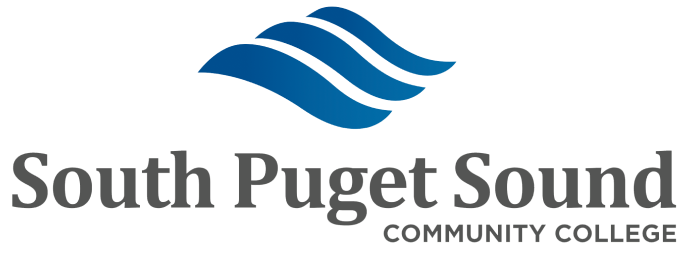Web governance is critical to the long-term success of our website.
With multiple content contributors making changes, a governance plan that describes how to manage and publish content allows us to focus on maintaining integrity while improving quality.
Also, our website is home to information critical to the success of prospective and current students. Therefore, it is of the utmost importance that all published information is timely, accurate, and consistent throughout the site.
Students, Faculty and Staff
Web governance provides the collaborative, centralized governance for the ongoing development, deployment, delivery, and maintenance of SPSCC’s online presence, to achieve a unified look for official college webpages and digital properties, ensure consistent, accurate content, and to appropriately represent the college brand through standard processes, roles, responsibilities, and practices.
Web governance refers to people, policies, procedures, standards, and guidelines that govern the creation and maintenance of our official website and digital properties. These include pages managed in a Drupal content management system (CMS), college calendar, secondary websites created and managed within spscc.edu, and other tools supporting e-communications, social media sites, and college video hosted on internal and external sites.
ROLES & RESPONSIBILITIES
Public Relations Office
- Develops web content and style guidelines.
- Establishes and maintains communication with college content owners, editors, and contributors with regard to content, design, accessibility and compliance with college policy.
- Maintains a current list of designated content contributors for all academic and administrative units.
- Provides CMS system training for content owners, editors, and contributors.
- Provides guidance on best practices for content, branding, style, and accessibility.
Content Owners, Editors & Contributors
- Add, edit, and remove content on web pages within the CMS, per approved permissions.
- Receive CMS system training.
- Work closely with the Web Content Manager to prepare content according to the College's web content and style guidelines.
- Review and update managed content on a regular basis to ensure accuracy and relevance.
Web Request Process
Requests for updates to web content, creation of new pages, addition or removal of content editors and contributors, or any other content-related changes should be submitted via a Helpdesk request or by emailing helpdesk@spscc.edu.
Web Permissions, Roles, and Publishing Workflow
Roles determine an individual's content management and workflow responsibilities.
- Public Relations Team – responsible for maintaining and generating content for high-level landing pages, home page sliders, and news posts, and providing client and content writing and editing support to content owners, editors, and contributors. Responsible for overall information architecture and content strategy.
- Web Content Manager – provides day-to-day oversight of all web content submitted for review before it is published to the website. Responsible for training, assistance, and guidance on best practices for all CMS users.
- Web Content Owner –
- Makes departmental decisions regarding content direction for their CMS pages that aligns with the College's stated strategic web guiding principles.
- Ensures that all department site content is kept up to date, accurate, and meets the College's quality standards.
- Designates faculty and/or staff authorized to serve as CMS Content Editors/Contributors. Departments are recommended to have two designated CMS Content Editors—a primary and a back up. If no CMS Content Editor is designated for a department or area, the Web Content Manager and Public Relations Office will be responsible for maintaining content.
Each academic or administrative department director or chair is a de-facto Web Content Owner.
- CMS Content Editor - responsible for adding and editing CMS content, paying particular attention to quality, style, consistency, accuracy, and timeliness. Not every department must have a CMS Content Editor – this role is set up for those departments who wish to have multiple pages reviewed by an editor before being submitted to the Web Content Manager for review and publishing.
- CMS Content Contributor – responsible for submitting draft web content to the CMS Content Editor (or Web Content Manager if no Editor is assigned in their department) for inclusion on the website. This role does not have access to the CMS.
Quality Control & Workflow
When a contributor or editor makes changes to existing pages, it is recommended a second person review the webpage(s) content before it is submitted to the Web Content Manager for review and/or approval. Make sure that you check spelling, grammar, style, links, and content quality on each page before you submit changes.
If pages are submitted with errors or they are of poor quality, the Web Content Manager will either reject the page and request the CMS Content Editor/Contributor make changes or will correct the page and contact the CMS Content Editor/Contributor to advise of any changes.
CONTENT RELEVANCY AND ENSURING UP TO DATE SITE CONTENT
Web Content Owners should plan to have their CMS Content Editor(s)/Contributor(s) review and update each department webpage at least every six months. Content that is no longer relevant or current must be updated, deleted, or unpublished. The Web Content Manager will send periodic reminders to all staff to review and update their pages.
Pages and site content found to be out of date will be referred to a Web Content Owner for review and updating. If pages or content remains out of date, Public Relations staff may remove or unpublish content until updates can be made.
CMS Training & Education
Only CMS Content Editors who have received CMS training will be given access to the content management system. The Web Content Manager is responsible for initial training.
If training is not immediately available, a department will need to work with a Public Relations staff member on maintaining/updating their content until an individual is able to receive training.
